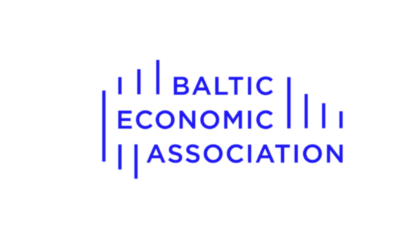The 7th Baltic Economic Conference will take place on June 26-27, 2025, in Vilnius, Lithuania. The Baltic Economic Conference is organized by the Baltic Economic Association in cooperation with Lietuvos Bankas and ISM University of Management and Economics.
We welcome full-length paper submissions from all fields of economics and finance. Each paper will be assigned a discussant. See the conference website for more details.
The submission deadline is approaching. The last opportunity to submit a paper is on Monday, 17 March.
Link to submission portal: https://www.conftool.pro/bec2025/

